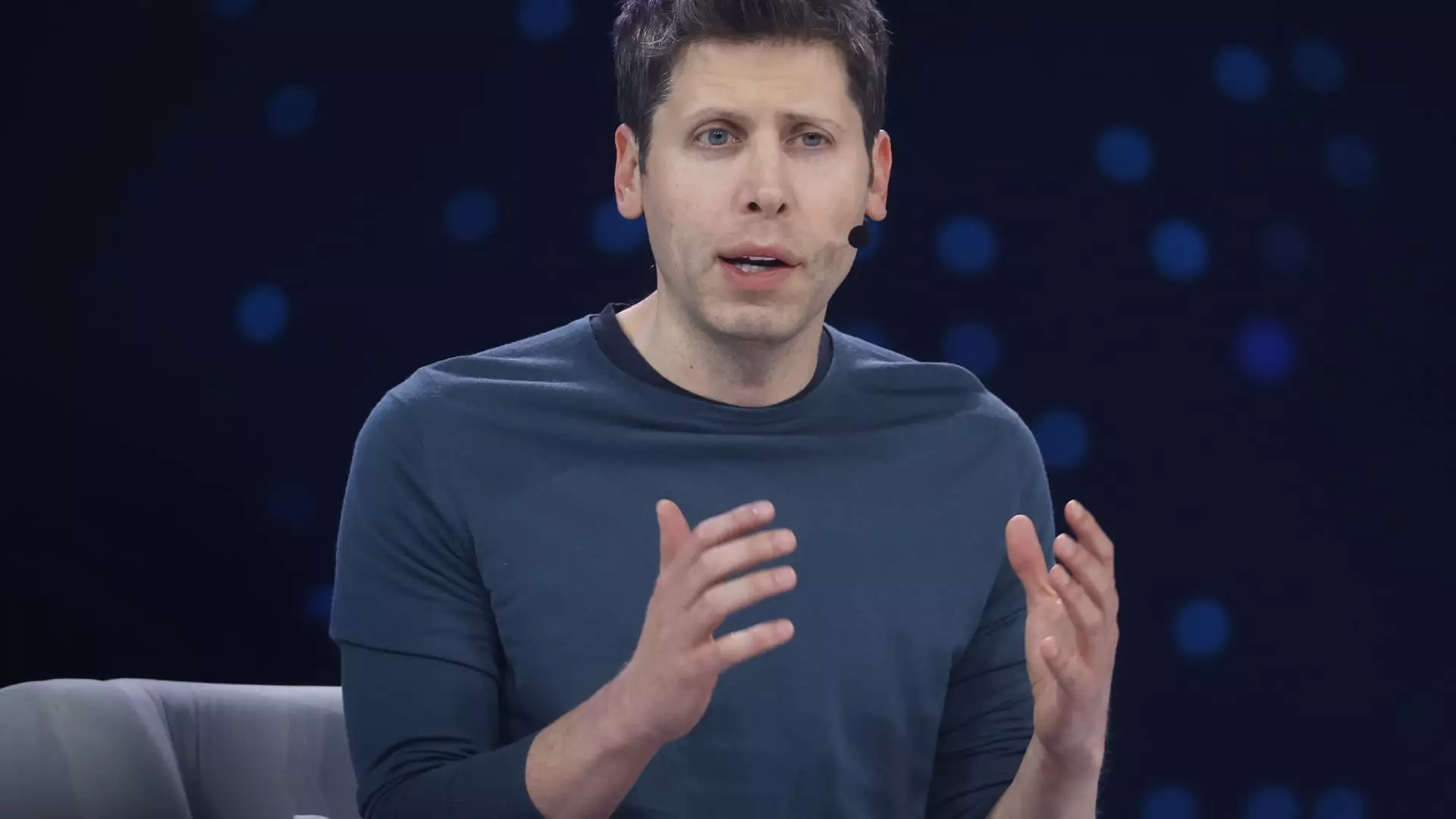In an unprecedented move, Meta Platforms has demonstrated the lengths to which it will go to build its artificial intelligence team, openly offering signing bonuses that could reach an astounding $100 million. This revelation, shared by OpenAI CEO Sam Altman during a recent podcast, underscores the intense competition within the tech industry to attract top talent in a field that is rapidly evolving. While Altman noted that Meta has pursued a significant number of OpenAI employees, none of the organization’s standout figures have accepted their lures thus far. This situation raises questions about the effectiveness of financial incentives as a strategy for recruitment, particularly within a field that thrives on passion and innovation.
Meta’s Perception of Competition
Altman’s comments provide critical insights into Meta’s mindset towards its competitors. He remarked that Meta perceives OpenAI as its primary rival, suggesting a level of apprehension regarding OpenAI’s success in AI innovation. However, the irony lies in Meta’s own struggles; despite significant investments, the company has encountered setbacks, including the delay of its flagship AI model due to doubts about its capabilities. Such delays reveal a responsive but arguably reactive strategy, as opposed to the proactive innovation-driven approach characteristic of successful tech firms.
The fundamental question arises: is Meta’s aggressive poaching strategy its answer to a perceived failure? The tech industry often rewards creativity and originality, and a strategy centered around acquiring talent with cash offers may breed a culture of short-term thinking, one that prioritizes immediate gains over long-term innovation. Altman himself expressed concern that this approach detracts from meaningful work and inhibits the development of a strong, innovative culture.
The Pursuit of Superintelligence
Meta’s ambitions in building a “superintelligence” AI system highlight its aspirations to not just catch up but to surpass competitors. By recruiting talent like Alexandr Wang from Scale AI, who is set to lead a dedicated research lab, Meta appears to double down on its ambitions. Yet, the question remains: can talent acquisition alone foster the innovation required to achieve such lofty goals? Rapidly assembling a team does not inherently equate to groundbreaking advancements; rather, it requires a careful calibration of talent, vision, and commensurate resources.
Moreover, the allure of substantial initial compensation packages can paint a distorted picture of what true motivation looks like. While financial incentives are an important aspect of recruitment, they can often obscure the values and mission of an organization. If Meta is merely drawing talent through size of paycheck rather than aligning with their vision, it risks eroding the cohesive culture necessary for long-term success. This reeks of desperation rather than strategic brilliance.
Critique from Within the Industry
Interestingly, not all analysts believe that Meta is faltering in its AI endeavors. Responses from industry observers suggest that Meta has indeed laid the groundwork for the open-source revolution in AI. Daniel Newman, CEO of Futurum Group, emphasizes the importance of Meta’s role in providing essential infrastructure for AI development. Such perspectives add a layer of complexity to the narrative surrounding Meta’s challenges. While stagnant product development may suggest a lack of progress, it purports the idea that foundational work often precedes breakthrough innovations.
It is crucial to note that the value of open-source technologies cannot be overlooked. The arrival of their Llama series serves as a testament to Meta’s commitment to fostering an ecosystem, potentially catalyzing third-party applications and innovations. In this capacity, Meta might yet leverage its resources to remain relevant amid fierce competition.
The True Test of Innovation
While immediate financial incentives can attract high-profile talent, the true test lies in nurturing an environment that fosters creativity and sustained innovation. Companies in the technology sector must strive beyond mere financial success; they should instill a culture of curiosity and passion among their employees. If Meta can evolve its recruitment strategy beyond financial enticements, there might be a chance to cultivate true innovation.
In an era where AI holds unprecedented potential for societal impact, the stakes have never been higher. As Meta navigates this tumultuous landscape, it should reconsider its priorities. The future will not simply be defined by who can pay the most to attract talent but by those who can cultivate an ethos that encourages ingenuity and collaboration. It is this synergy, rather than superficial riches, that ultimately drives technological advancement. Meta’s current trajectory is fraught with challenges, yet the way forward must involve a deeper commitment to innovation and culture rather than short-lived financial gains.

